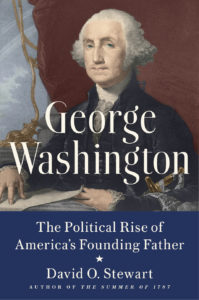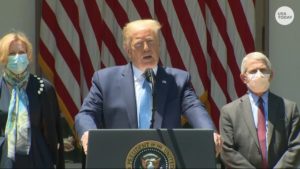It Matters How You Leave!
Harrassed by a clown car of irresponsible lawyers, our political life today is a mind-warping coda to a four-year period of smashed behavioral norms and personal vituperation, all in service to a corrosive cult of personality. For those who pine for sanity and integrity in our public sphere, there is no better era to consider than 1796 and 1797, the final months in office of our first president, George Washington.
Thirteen years before, Washington had established his gift for relinquishing power. Then, he resigned as commander-in-chief of the Continental Army. Thunderstruck at the retirement of America’s principal leader, King George III observed that if the report was true (the monarch found it hard to believe), then Washington was the greatest man in the world.
Called back into public life as the first president of the United States, by 1796 Washington again ached to leave office. He had wanted to retire after his first presidential term, but an avalanche of entreaties from friends persuaded him that his duty to the infant republic required four more years of service. B
y 1796, however, Washington was adamant. He was going home when his term in office ended.
American politics had grown poisonous. A Philadelphia newspaper had called for Washington’s impeachment. A New York mob stoned former Treasury Secretary Alexander Hamilton when he defended a treaty with Britain. A political cartoon portrayed Washington mounting the steps to the guillotine for execution, an image that sent the president into a private rage.
Washington pleaded with the leader of the opposition, his former Secretary of State Thomas Jefferson, for restraint in political discourse. Jefferson deflected the overture. The political scene, he insisted, involved a choice between “honest men and rogues.” Jefferson was certain he knew which was which.

The president framed his concerns in an appeal to all Americans, one that still resonates. His Farewell Address observed that partisanship is inevitable in popular governments, but it can impose terrible costs.
As political rivalry grows bitter, he warned, it nurtures “a spirit of revenge,” which through history has bred “the most horrid enormities.” The greatest risk, Washington added, is that factional battles “gradually incline the minds of men to seek security and repose in the absolute power of an individual.”
Eventually, “the chief of some prevailing faction more able or more fortunate than his competitors turns this disposition to the purposes of his own elevation, on the ruins of public liberty.” In short, a cult of personality, and tyranny. Sound familiar?
Though Washington thought partisanship was unavoidable, he advised Americans to exercise “a uniform vigilance to prevent its bursting into flame.” To that end, they must divide power among branches of government, ensuring popular control and individual liberty. America’s courts and election officials have been playing that role in our current drama. The president also warned against those who fostered factionalism with lies about other Americans. His prescience is striking.
At the inaugural ceremony for his successor, John Adams, on March 4, 1797, Washington was joyful. His expression, according to Adams, was “as serene and unclouded as the day. . .. Methought I heard him think Ay! I am fairly out and you fairly in! see which of us will be happiest.” Adams assured his wife that weeping onlookers were not moved by their joy over his ascension to the presidency. The tears, he sighed, reflected “grief for the loss of their beloved.”
As Washington strode from the ceremony, spectators rushed after him for a last view. In the street, he waved his hat to cheering onlookers. The crowd, falling quiet, followed him to the president’s residence. Reaching the door, Washington turned to the now-silent crowd, his face grave, tears on his cheeks. Unable to speak, he gestured his thanks and farewell.
The contrast to our current situation is stark. Our departing incumbent does not exhort the nation to pull together. Rather, he feverishly fans the flames of partisanship while conducting a months-long campaign to destroy public confidence in our electoral system.
Imagine the inauguration spectacle that looms in a few short weeks. Should the departing president manage to control his fury sufficiently to attend, he will doubtless scowl through the ceremony, tapping out false and incendiary tweets before, during, and after.

The inaugural crowd will not watch him depart in awestruck silence and gratitude, as Philadelphians viewed Washington in March 1797. More likely they will chant, with gusto, one of the outgoing president’s signature phrases: “Lock him up.”
Were he here to see it, President Washington might well weep.
(My study of Washington political genius, George Washington: The Political Rise of America’s Founding Father, which will be released on February 9, 2021.)
I am anxious to read it. I have read and reread and recommended your last two. Thanks for the heads up. My older grandchildren love the info in them. Keep writing, Please!
Thanks so much, and lovely to hear from you!
Cannot wait to get my hands on GW and start reading.
Thanks — Feb. 9!